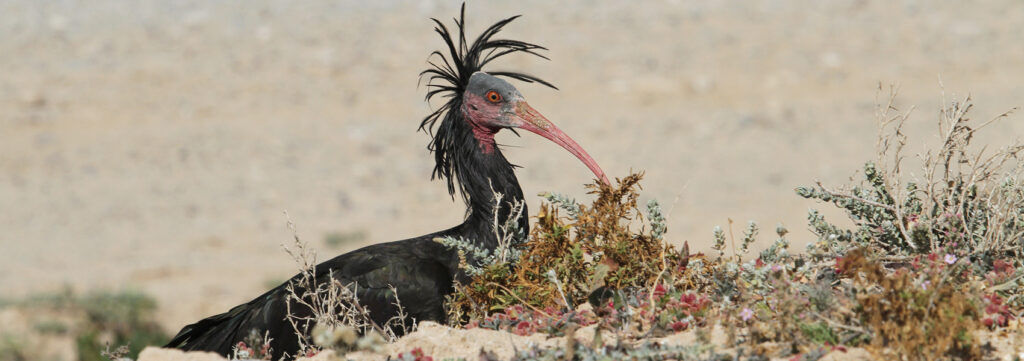For the last ten years Wise Birding Holidays has been supporting a number of small conservation projects as a result of donations made after each tour. We have donated £3,000 to these smaller charities, a number of which can be seen below.
More recently we have started to pool the donations from most of our tours into one central fund. Once a target amount has been reached this money will then be used to support a single project in the hope of achieving more for species conservation. At present (May 2023) this amount stands at just over £9,500pp.

BTO Satellite Tracking of Common Cuckoos
Some tours to Ghana have supported the BTOs TRACKING CUCKOOS TO AFRICA PROJECT This fantastic project has been satellite tracking the movement of Cuckoos from the UK to their wintering grounds in Africa, some of which have passed through Ghana. The project hopes to learn more about the challenges these birds face on their journey and therefore try and help reverse their decline. The cuckoo has decreased by 63% in England between 1995 – 2010 and this seems to be representative of a downward trend amongst many other UK breeding migrants that make similar migration journeys like the Spotted Flycatcher and Turtle Dove. Our Nov 2013 Ghana tour donated £240 to the satelleite tracking.
Saving the Marsican Brown Bear in Italy
Our tours to the Abruzzo National Park in Italy gives you an excellent chance of seeing and helping the Marsican Brown Bear. The Marsican Brown Bear (Ursus arctos marsicanus), with an estimated population of no more than 50 animals, is a highly threatened sub-species of the European Brown Bear and is restricted almost entirely to the wonderful Abruzzo NP in Italy. We always donate our funds to a recently formed group Salviamo l’Orso: The Association for the Conservation of Marsican Bears.
An independent group passionate about bears working to ensure the species does not become extinct. We have helped them raise money to secure the lease of a very important woodland used as a winter refuge and birthing area for female Marsican Bears. With an estimated 6-8 female bears currently producing young a year and a world population of approx. only 50 bears, this site is hugely important. Salviamo l’Orso also works together with researchers to get reliable estimates of the Marsican Bear population and in particular the Females with Cubs Census that carries out annual surveys determining numbers of new cubs born into the population.
REGUA Reserve in Brazil’s Atlantic Forest
REGUA is a non-profit non-governmental association set up to conserve, the highly endangered Atlantic Rainforest and is home to an incredible 460+ species of birds of which over 115 are endemic to the Atlantic Forest. By joining our tours to REGUA Bird Lodge you will be in excellent hands and directly contributing to REGUA’s important work. All income from the lodge goes towards this region, the second most endangered biome on earth after Madagascar. REGUA’s work includes, a huge forest restoration project, wetland creation and education programme for local schools. Plus a recent Tapir Re-introduction Project on their land.
Giving the Iberian Lynx a helping hand in Portugal
Our tours to the Sierra de Andujar region of Spain have an excellent chance of seeing the beatiful Iberian Lynx. The Iberian Lynx is now recovering from just 150 animals to now as many as 500 Lynx. This good news in part, thanks to a captive breeding programme through the Lynx Life Project and good densities of prey (rabbits). Work is also being done in Portugal to try and secure Iberian Lynx habitat through close liaision and agreements with estate owners in the regions where the Iberian Lynx lives. Rabbits are one of the most important prey items for the lynx and they need large areas to hunt, so it is vital that these wild areas of Mediterranean woodland and scrub where the lynx can still be found, remain wild. The main threats to the Iberian Lynx are: habitat destruction and fragmentation – over-development, prey shortage (rabbits) – associated with habitat degradation and disease and Traffic – construction of roads through key lynx territories.
By joining our Iberian Lynx tours, we like to donate to the LIFE-Nature Project which is trying to secure a brighter future for the Iberian Lynx and the Black Vulture in Portugal. Although both species have very different appearances and habits, the Iberian lynx and the Black Vulture have a lot in common. They share the same habitat the same prey and many threats that, over time, led them to share the conservation status of Critically Endangered in Portugal.
Northern Bald Ibis Conservation in Morocco
The Northern Bald Ibis is critically endangered with an adult population believed to be little over 100 breeding pairs therefore making it one of the rarest birds in the world, with 95% of the population found in Morocco.
Our recent tours here have donated money to an ongoing research project between SEO (Sociedad Española de Ornitología) and the local conservation authorities particularly the Souss-Massa National Park, with the strong commitment from the RSPB. The project has been running for around 14 years and SEO/BirdLife is supporting a dedicated team of local wardens who are deeply involved in the protection and scientific monitoring of the species. Knowledge on seasonal movements outside the National Park and neighbouring areas is very limited with known sightings recorded regularly at places as far as 700 km north in Tetuan or 1200 km down South in Mauritania. The main known threats for the species is the increase in the construction of hotels and vacation homes to the breeding and feeding areas as well as increased levels of disturbance. Therefore, improving knowledge on the species movements is essential for the survival of the species.